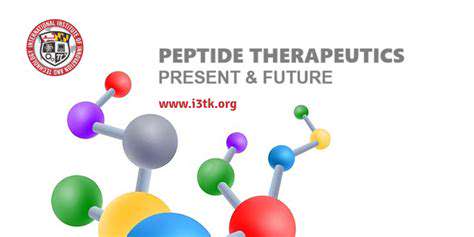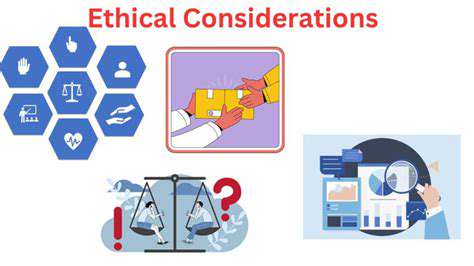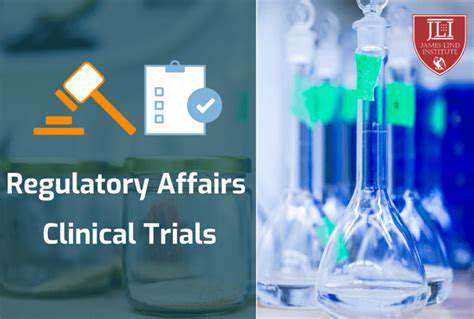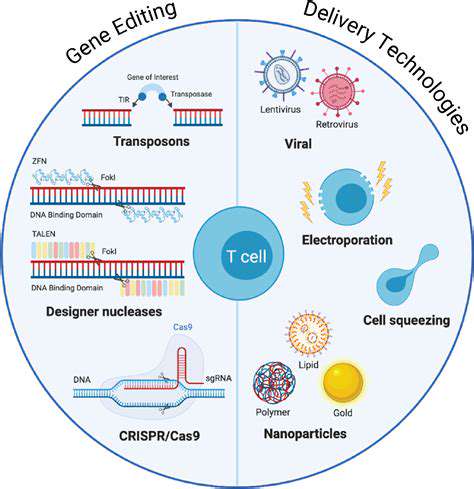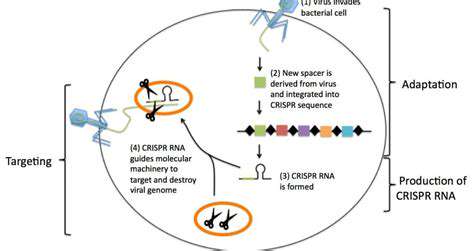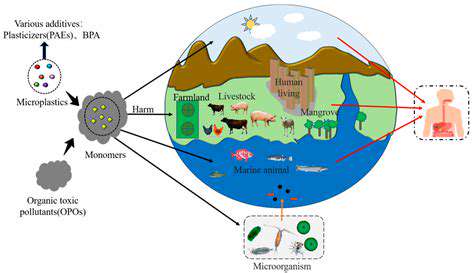Tailoring Nutritional Profiles for Enhanced Health Benefits
Optimizing Nutrient Intake through Synthetic Biology
Synthetic biology offers a revolutionary approach to tailoring nutritional profiles by enabling the design and engineering of organisms capable of producing specific nutrients. This precision engineering allows us to optimize the bioavailability and concentration of essential vitamins, minerals, and other bioactive compounds in foods. For instance, genetically modified crops could be engineered to produce higher levels of vitamins like vitamin A or iron, making them more accessible to populations in regions with nutritional deficiencies. This targeted approach could significantly improve public health outcomes by addressing specific dietary needs and promoting overall wellness.
Furthermore, synthetic biology can be applied to the production of novel food ingredients with enhanced nutritional value. Researchers are investigating the possibility of creating microorganisms that produce unique bioactive compounds, such as antioxidants or prebiotics, that can improve gut health and support various bodily functions. This opens doors to creating nutrient-dense foods that go beyond what nature provides, offering innovative solutions to address contemporary nutritional challenges.
Personalized Nutritional Strategies Driven by Genomics
Integrating synthetic biology with personalized genomics allows for highly individualized nutritional strategies. By analyzing an individual's genetic makeup, we can identify specific nutrient requirements and potential metabolic vulnerabilities. This personalized approach can be crucial in preventing chronic diseases and optimizing health outcomes. For example, certain genetic variations can influence how the body processes nutrients like folate or vitamin D, and understanding these variations can lead to tailored dietary recommendations for optimal health.
This approach also extends to identifying potential intolerances or sensitivities to specific foods. Genetic markers can indicate predispositions to adverse reactions, enabling individuals to modify their diets to avoid triggering factors and promote well-being. This personalized understanding of nutritional needs, combined with the power of synthetic biology, can lead to more effective and targeted strategies for maintaining optimal health and preventing disease.
Engineering Novel Food Sources with Enhanced Nutritional Value
The application of synthetic biology extends beyond modifying existing food sources. It allows for the engineering of entirely new food sources with unparalleled nutritional profiles. This could involve creating microorganisms that produce complete protein sources or developing algae strains capable of accumulating high levels of essential fatty acids and vitamins. This approach has the potential to create sustainable and efficient food production systems, especially in regions facing food security challenges.
The ability to engineer organisms for specific nutritional outputs has significant implications for meeting the growing global demand for healthy and sustainable food. By leveraging synthetic biology, we can potentially create innovative and efficient solutions for producing food rich in essential nutrients, while minimizing environmental impact and maximizing resource utilization. This innovative approach has the potential to revolutionize global food systems, ensuring access to nutritious food for all.
This includes the potential to create sustainable and environmentally friendly food production systems, by utilizing less land and water resources compared to traditional agriculture. Synthetic biology could empower us to generate a more diverse and resilient food system, capable of adapting to future challenges and ensuring a nutritious diet for all.
Ethical Considerations and Future Directions

Transparency and Accountability
Maintaining transparency in data collection and usage is paramount. Users should be clearly informed about how their data is being collected, processed, and utilized. This transparency fosters trust and allows individuals to make informed decisions about sharing their information. Detailed privacy policies should be easily accessible and understandable, avoiding overly complex legal jargon.
Accountability measures are also crucial. Clear lines of responsibility should be established for data handling practices, ensuring that individuals have recourse if their data is mishandled or violated. Robust oversight mechanisms are needed to enforce ethical standards and prevent future breaches.
Data Security and Privacy
Implementing robust security measures is essential to protect sensitive data from unauthorized access, use, disclosure, alteration, or destruction. This includes employing encryption techniques, multi-factor authentication, and regular security audits to identify and address vulnerabilities.
Ensuring data privacy is a critical aspect of ethical considerations. Strict adherence to privacy regulations, such as GDPR and CCPA, is vital to safeguard user information. Data anonymization and pseudonymization techniques should be employed wherever possible to minimize the risk of re-identification.
Bias Mitigation in Algorithms
Algorithms used in data-driven systems can inadvertently perpetuate existing societal biases. Careful consideration must be given to the potential for bias in algorithms to avoid amplifying or creating unfair outcomes. Data scientists and developers should actively identify and mitigate potential biases during algorithm development.
Bias testing and auditing are essential to detect and correct any discriminatory patterns. Continuous monitoring and evaluation of algorithms are crucial to ensure that they remain fair and unbiased over time. Regular re-evaluation of algorithms, particularly those affecting sensitive populations, is critical to prevent unintended consequences.
Fairness and Equity in Outcomes
Data-driven systems should strive to promote fairness and equity in their outcomes. This means ensuring that the systems do not disproportionately disadvantage certain groups or individuals based on factors such as race, gender, or socioeconomic status. Discriminatory outcomes should be actively identified and corrected to create a more equitable society.
Systems should be designed to avoid perpetuating existing inequalities. Careful consideration of the potential impact on marginalized communities is vital in the development and deployment of data-driven solutions.
Accessibility and Inclusivity
Data-driven systems should be designed to be accessible and inclusive for all users, regardless of their abilities or backgrounds. This includes considering the needs of users with disabilities and ensuring that the systems are usable by a diverse range of individuals. Accessibility standards and inclusive design principles should be integrated throughout the development process.
Societal Impact and Responsibility
Data-driven systems can have a profound impact on society, and developers have a responsibility to consider these broader implications. Careful consideration of the potential social, economic, and environmental consequences of their systems is critical. Developers should engage in ongoing dialogue with stakeholders to understand and address potential concerns.
Transparency and accountability are essential to building public trust and ensuring that data-driven systems are used responsibly and ethically. Thorough ethical impact assessments should be conducted before any large-scale implementation.
Data Ownership and Control
Clear guidelines regarding data ownership and control are essential. Individuals should have the right to access, correct, and delete their data. Data subjects should have a clear understanding of their rights and how to exercise them.
Mechanisms for data portability and transfer should be established to allow individuals to move their data between different systems or providers. This will empower individuals to maintain control over their personal information.
